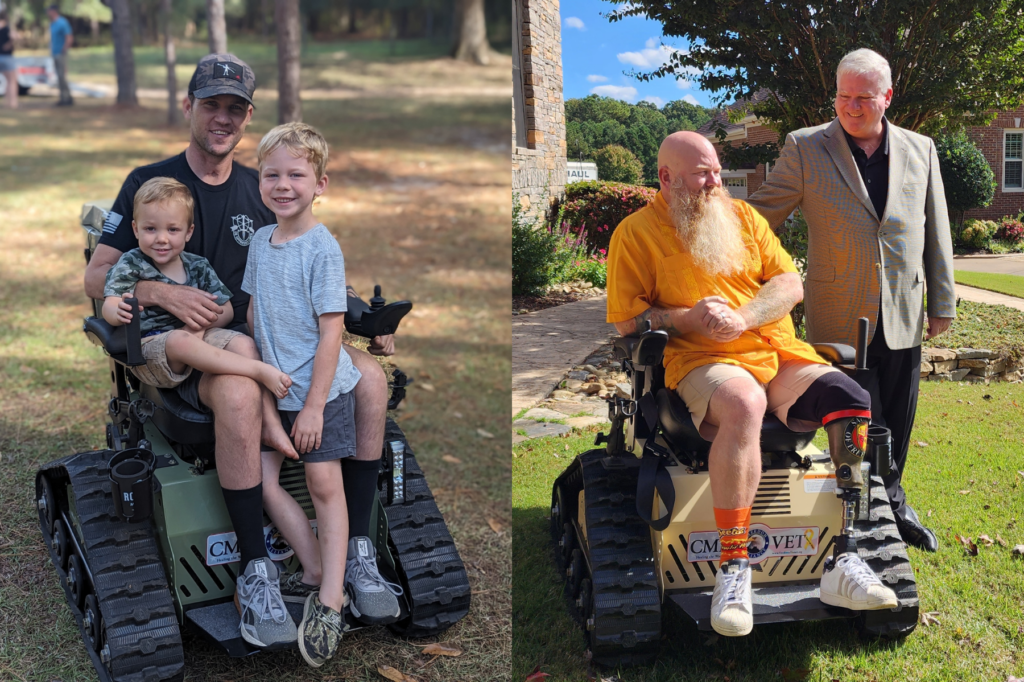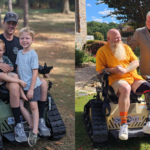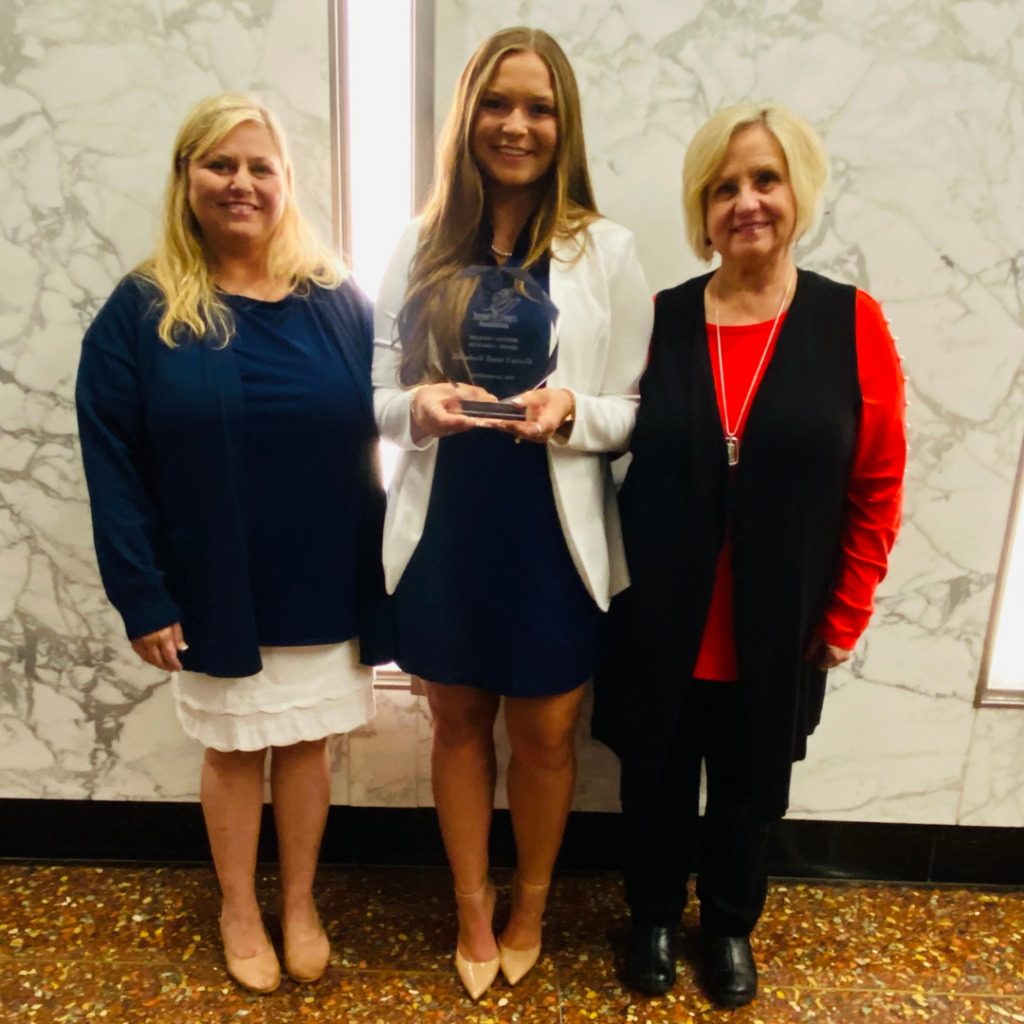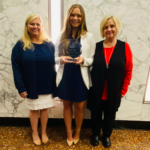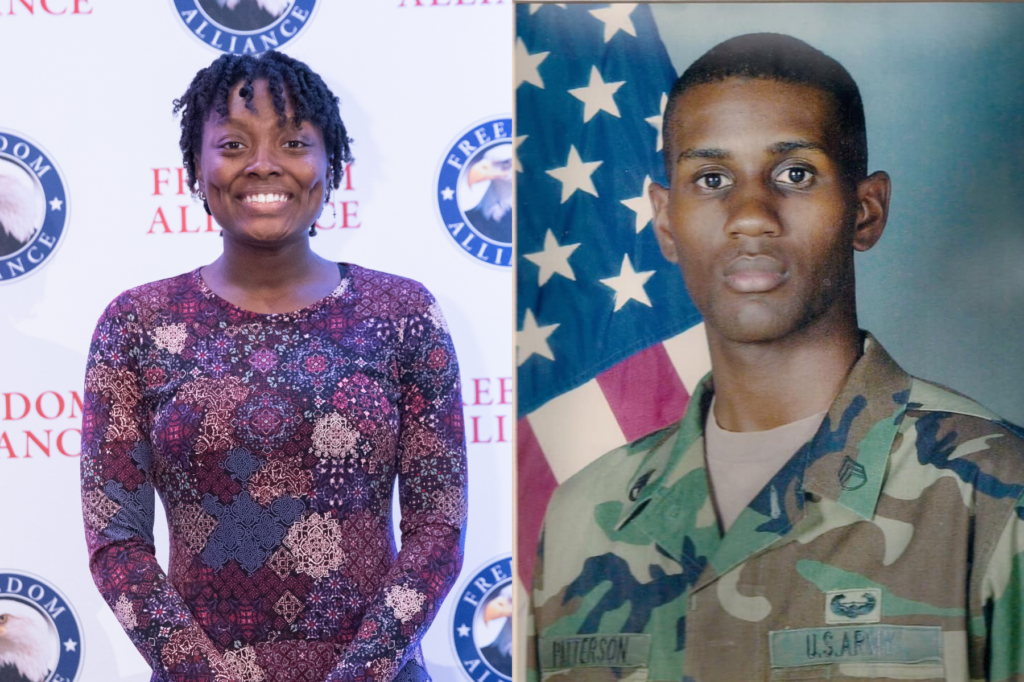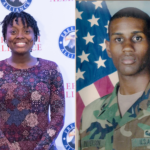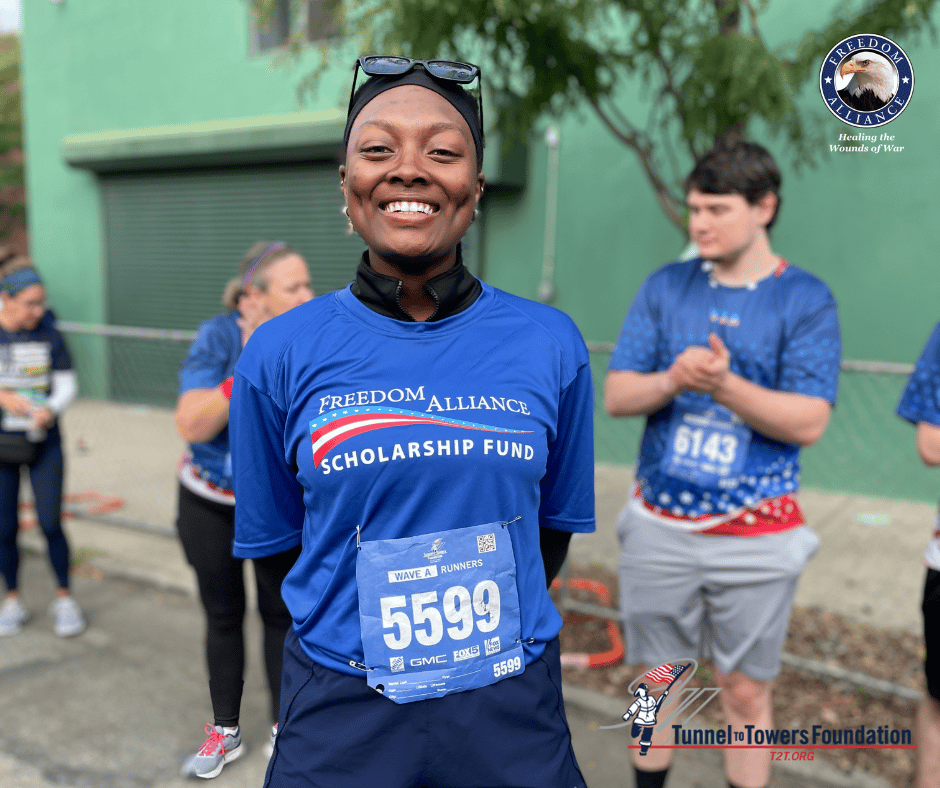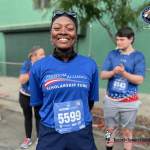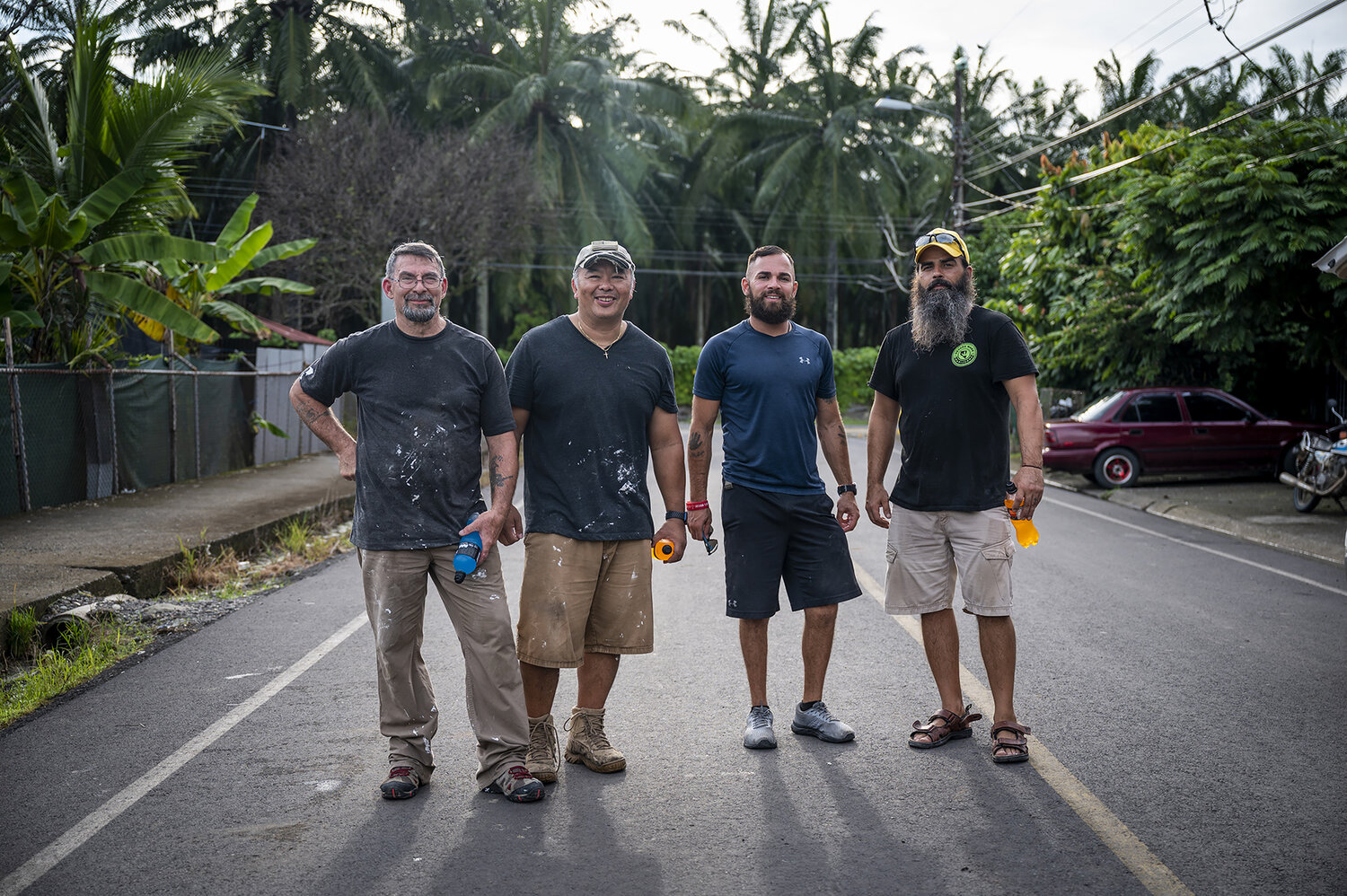
When a service member joins the armed forces, they commit to a life of service. Continuing to serve others is important to the warrior’s journey, especially after the war’s end. And yet, the current policy is to classify our veterans as “disabled” and pay them to stay at home. To the warrior soul, this debilitation is especially destructive.
Furthermore, many veterans have only traveled outside of the US as part of the war machine. So as we approached the 20th anniversary of the September 11 attacks, Freedom Alliance wanted to give some warriors the opportunity to accomplish a different kind of mission, in a different country. And this mission—to serve others—would also serve the veterans’ hearts and souls.
Marine veteran Master Gunnery Sergeant Ricardo Sanders and his wife, Maureen, co-led this special event with Freedom Alliance. When Ricardo was a young man, he left the United States for Costa Rica to help build churches for the Assembly of God. It was then that he met his wife, Maureen, a Costa Rican.
After a sour run-in with Sandinistas from Nicaragua, he decided to move back to the States and join the Marine Corps. During his career, Ricardo was a famed fighter and helped develop the modern-day martial arts program for the Corps. Ricardo deployed to Afghanistan in 2002 and helped build some of the infrastructure that would be used by our military for nearly two decades.
In February, retired Army Captain Ed S. participated in the Freedom Alliance Offshore Experience. He served 15 years, first as an enlisted man and then as an infantry officer. He deployed twice to Iraq and twice to Afghanistan. After attending our Offshore Experience, Ed fell in love with Costa Rica and moved there with his wife and 16-year-old son.
Now as a local, Ed remarked, “I am, again, very grateful to have been given the opportunity to participate in the program a second time. It provided a unique experience in a very diverse environment with people from all walks of life…. The one main common denominator was our military background, but we each learned that we share much more in common…especially in terms of service or serving others.”
Joining the team from Texas was Staff Sergeant Jason M., a soldier who served 10 years in the Army. During his time in service, Jason was sent as an augmentee to a peace-keeping mission in the Sinai Peninsula in Egypt, where he served in multiple medical roles and special missions.
Lieutenant Joe B. from Minnesota also served in the medical field in both the Army (14 years) and the US Navy. He deployed to Iraq in 2004 and Afghanistan in 2005 and has served in response to natural disasters with a National Guard unit. Joe’s mission began on his flight to Costa Rica. Joe is a respiratory therapist and responded (as warriors do) when a man on his flight passed out, likely from a heart attack.
This was our very capable team of veterans, and Ricardo had found just the project for them. Through his network of friends in Costa Rica, we were introduced to Pastor Diego and his wife, Noemi, of Iglesia Evangelica El Shaddai in Parrita. The area where the church is located is one of the most frequently flooded, and the church, with its unique second-story sanctuary, has served as a refuge for families during the floods. Pastor Diego welcomed our team and asked us to repair flood-damaged walls and install ceilings in two classrooms.
The team served for three days at the church, each morning driving about an hour south while gazing at the coastal jungle scenery. Ricardo led the project and directed Joe, Jason, and Ed on how to install a gypsum ceiling onto concrete. Ricardo brought some tools, and we borrowed others from Horizon Church in Jaco.
The team tore down a partial ceiling, cleaned and scraped much of the walls, and applied plaster. Then, they installed the brackets to hold up the drywall ceilings. Finally, the team taped up the seams and applied compound to finish the project. Maureen’s brother, Javier, and a local church member also volunteered to help.
Each night, the team gathered for group talk sessions in one of the two condos donated by Gerald and Virginia Lindholm and Bob and Alicia Hagadorn. Freedom Alliance organized a series of lessons based on King David to study the heart of the warrior king and how his story relates to modern combat veterans.
By the end of our three days of work, the ceilings were installed, and the walls were ready for paint. Ricardo sponsored a local painter to finish, as we moved on to the next mission. The grateful pastor and his wife sent us photos of the finished rooms, which looked like new!
The morning after our mission in Parrita ended, Ricardo offered another special project for the veterans. In his retirement, Ricardo makes knives, many of which are given out at Freedom Alliance events as keepsakes. He brought some pre-cut blades and gave instructions on knife-making, giving the other vets a chance to attach handles and make their own sheaths. These knives would be a reminder of their time in Costa Rica, but each holds its own significance. For example, Joe’s handle was made of Purple Heart wood, in honor of those he treated in Iraq and Afghanistan who likely received our country’s Purple Heart Medal.
Later that day, the team visited a local grocery store to pick up food baskets and meet our intern, Thomas Barrett. Thomas is the 16-year-old son of the pastor of Horizon Church in Jaco and has grown up in Costa Rica. He has a heart for our military and receives instruction each week on topics ranging from military history, customs, and courtesies to deeper-level issues like moral wounding and the burdens of war.
Thomas told us, “Before arriving to meet the warriors, I didn’t know exactly what to expect. I was mostly excited but part of me felt anxious to meet them.” Introductions made, Thomas joined the team to serve as an interpreter for our next mission.
With the food baskets loaded into our vehicle, we drove to a church in Cristo Rey, which would be our base of operations. The Cristo Rey community consists of mainly low-wage and migrant workers from Nicaragua, and the poverty is grossly apparent. The people there live in shacks of corrugated metal and homes with dirt floors.
Our first activity was hosting a talk about integrity for a group of 20 boys, ages 12 to 18. Lucky for us, the boys arrived early and helped us unload the food baskets in preparation for the evening giveaway. Then we began our main event with an icebreaker. We put one of three colored dots on the boys’ foreheads with the instructions that they can’t talk but that they must form groups. They quickly grouped themselves based on the color of the sticker on their foreheads. We used this icebreaker to show how easy it is to stick with those who look like us…even though no one had said they had to form their groups based on the colors of the stickers!
Next, we introduced our veterans as American warriors and explained that warriors hold themselves to high standards and values. One such “warrior value” is integrity, which we defined as “doing the right thing when no one is looking or when everyone is looking.” Then we split into smaller groups to talk about the veterans’ service as warriors and incidents of integrity they’ve faced. The kids asked great questions, and we ended our time by praying over each group.
Finally, it was time for the food basket distribution. These were beyond the normal size because our grocer had taken advantage of some sales. Each “basket” comprised three bags totaling about 20 pounds of groceries!
When we realized that many of the women coming to retrieve one would struggle to lug it home, it gave us an opportunity to go the extra mile. Our team carried food baskets to each home who needed help. Many of the boys who participated in the discussion also helped carry, and a spirit of community grew as we gave out 52 food baskets!
Thomas, who served as our interpreter, said of our veterans, “One of the first things I noticed about this group was how welcoming and friendly they were towards me and everyone in the poverty-stricken area.”
We ended up including five of the local kids at our dinner. Being moved in the moment, Joe covered their portion of the bill. Afterwards, we attended the Saturday night worship service back in Cristo Rey. The pastor recognized our group and expressed his gratitude for our service to his congregation.
The following day, we had just enough time for a quick morning adventure after breakfast but before church. We raced down the highway to a bridge spanning the Tarcoles River. It’s famous for the massive crocodiles that sunbathe by the river just below the bridge. The municipality constructed pedestrian sidewalks on the bridge, and it’s become quite the attraction.
Then we headed to Horizon Church in Jaco for Sunday morning service. The message was on the final chapters of Acts, and we learned how our mission in Costa Rica is an extension of the mission Paul began with the early church.
After church, the men put the finishing touches on their custom knives under Ricardo’s guidance before heading off the resort for a special evening program. Friends at Horizon Church donated the use of their house, which sits on a ridgeline overlooking the Pacific Ocean. We gathered around their pool to finish our series on King David.
We invited Pastor Daniel Barrett, Thomas’s dad, to administer communion as the sun sank in the west. Thomas brought his guitar and sang a few worship songs as we reflected on the past week and our walk with Christ. As we took that moment to admire God’s beautiful creation, a mist arose from the surrounding jungle to obscure our vision of the ocean and landscape and then receded as the song ended. It was a most-memorable ending to an event…and that night’s sushi buffet wasn’t bad either!
Thomas later reflected, “Even in just the couple of days I got to spend with them they really taught me what it was like to be a warrior for God.” After arriving home, Joe said of our faith-based mission, “First and foremost, I think it is an important aspect of growth and important for this to continue.”
Ed said, “I am extremely grateful for the donors because this program would not exist without them, whether it’s their monetary, facilities, or time contributions—it all coalesces to provide invaluable assistance the local Costa Rican communities as well as the veterans brought in. The program helps forge those life-long relationships that may have otherwise never existed and is therapeutic in ways the VA and other US resources cannot compare.”
Reposted from www.faoffshore.com
